
Popular Searches

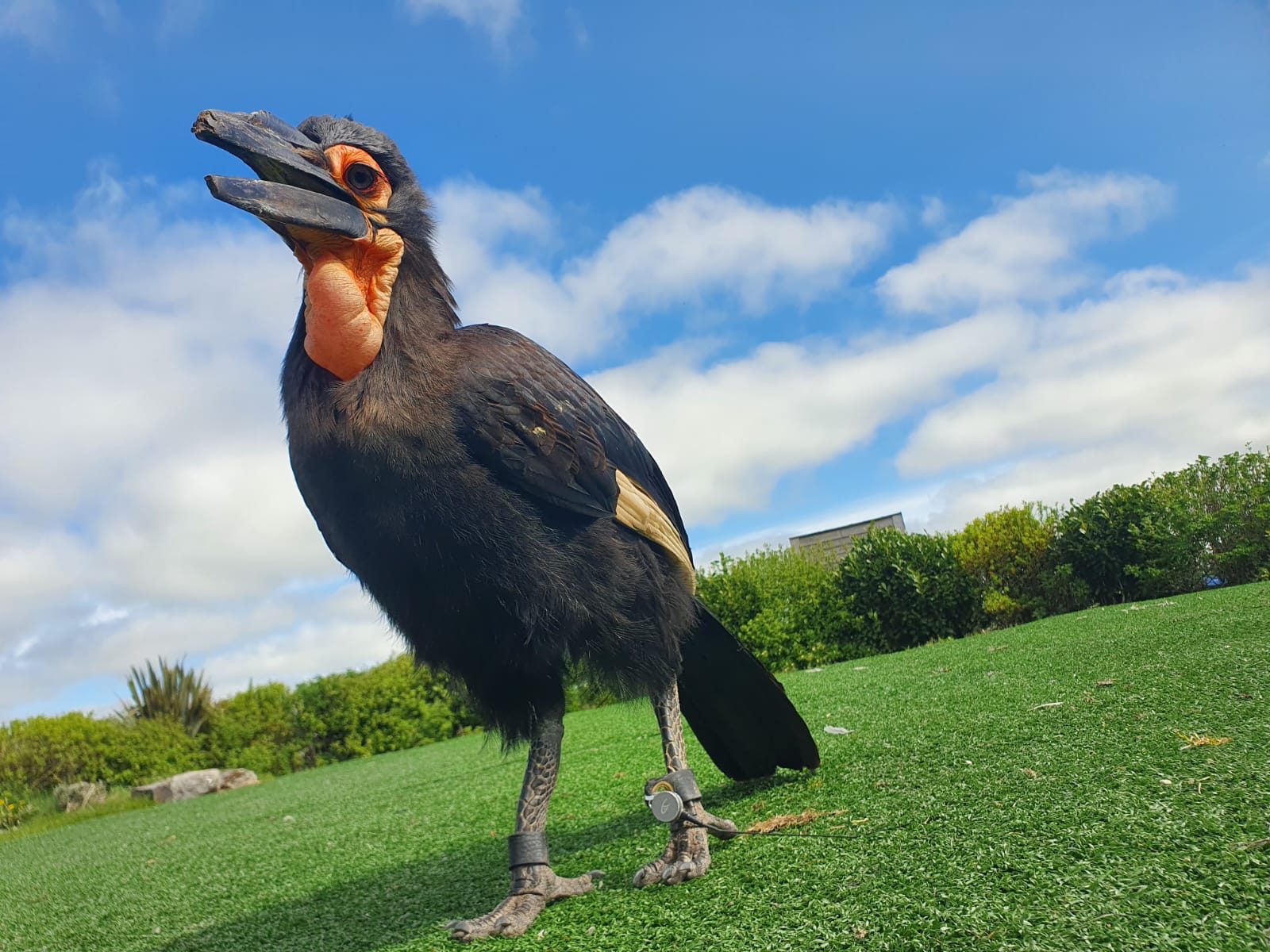
Zoo News – April 2022
The World of Raptors
The World of Raptors is an educational demonstration where members of the public have the opportunity to see a wide selection of birds of conservation significance free flying. This summer you may see “Henry” the male Southern-ground hornbill who is new to our World of Raptor demonstrations. After several months of training, he is ready to take to the skies for visitors as our team share the important conservation message of this species.
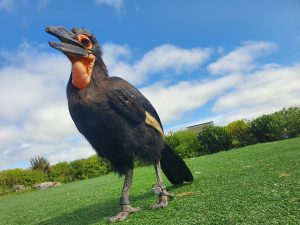
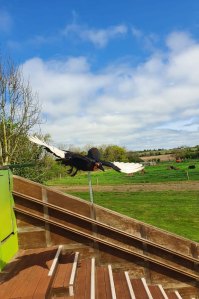
Photo Credit: Donal Moriarty
Southern-ground hornbills are a vulnerable bird, found in central and southern Africa. Family groups spend large portions of their day foraging for food on the ground, using their large bill (beak). The bill found on a hornbill is a very important adaptive feature, which grows throughout their life span of 40-50 years. The bill acts as a heavily relied upon tool, allowing them to dextrously manipulate food and interact or examine other objects which they encounter in their environment. Using the notched edges, hornbills can tear and grasp, however this can lead to wear and tear of the bill and Henry’s damage has unfortunately been a little more severe.
You may notice Henry does not look quite like other hornbills as he came to damage his bill at an early age. The upper mandible (composed of keratin – the same protein found in fingernails) became broken. Upon veterinary inspection he is otherwise seen to be a healthy young bird and we have been assured his welfare has not been compromised.
Over the past few months our team of vets and zookeepers have worked to assist Henry by designing and fitting a prosthetic tip to extend his bill as it grows, however this was found to be an unsuitable solution for Henry, and it was seen that he experienced a higher degree of positive welfare without the artificial bill. As welfare is our number one priority it was decided by animal care management that he would not continue to use a prosthetic bill. Henry is being closely monitored by our team to ensure he continues to have optimal welfare. However, we are pleased to say our vet team has assured us that his bill will regrow over time, and he ought to make a full recovery!
Henry is a juvenile hornbill which means he is still developing, as hornbills grow and mature, they undergo a change in appearance. When Henry comes to reach sexual maturity, we will see some changes to his appearance such as the development of a bright red wattle as well as the development of thick dense black feathers, we are very excited to see these changes over the next few years!
Visitors will be able to see three World of Raptor displays per day. Between displays, visitors can view the birds in their resting aviaries.
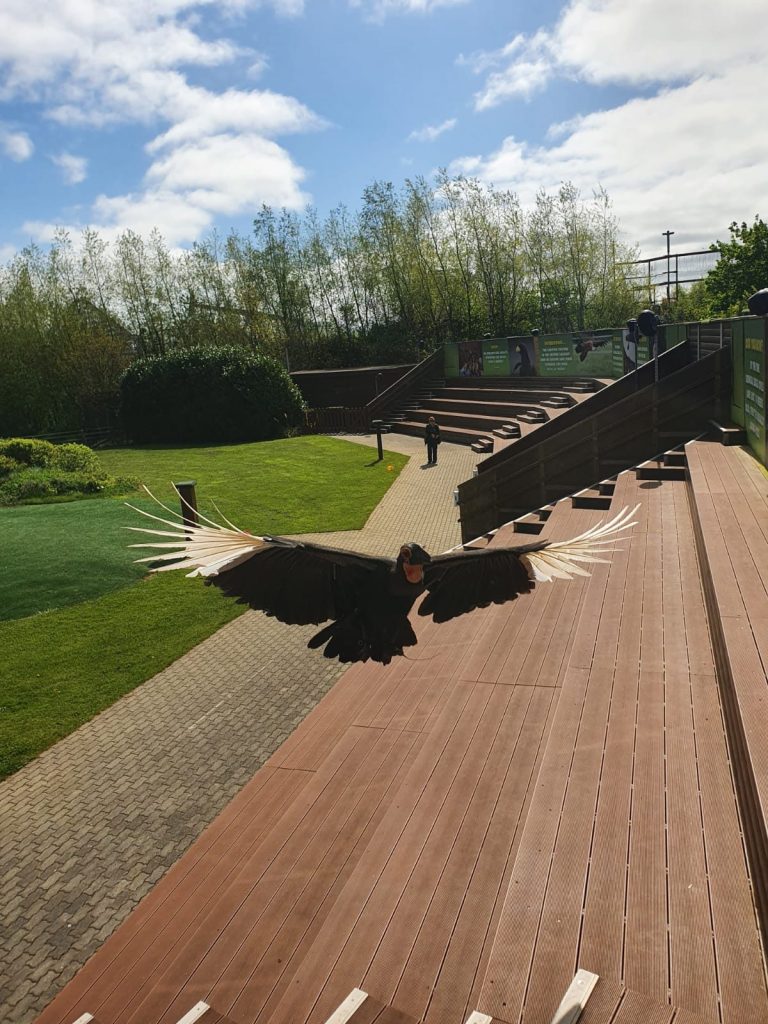
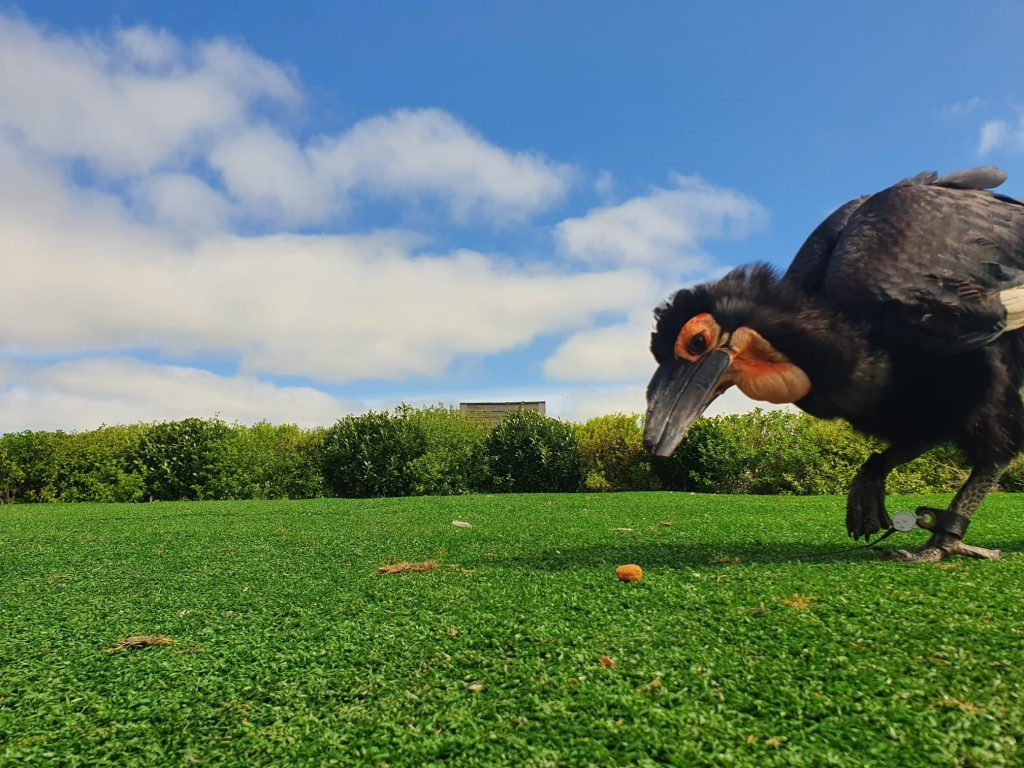
Photo Credit: Donal Moriarty
Corsac fox
Visitors to Tayto Park will see the newly refurbished Corsac fox enclosure with a new viewing window installed and a new house built for the foxes to use. Large viewing windows will allow visitors to see the foxes curled up inside the house or exploring the new plants and burrows that have been put into the enclosure. The foxes have adapted quickly to this revamped area and are often seen sitting in front of the viewing windows allowing visitors to see them up close.



